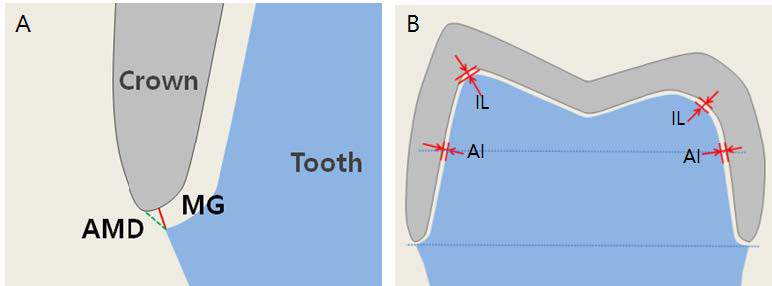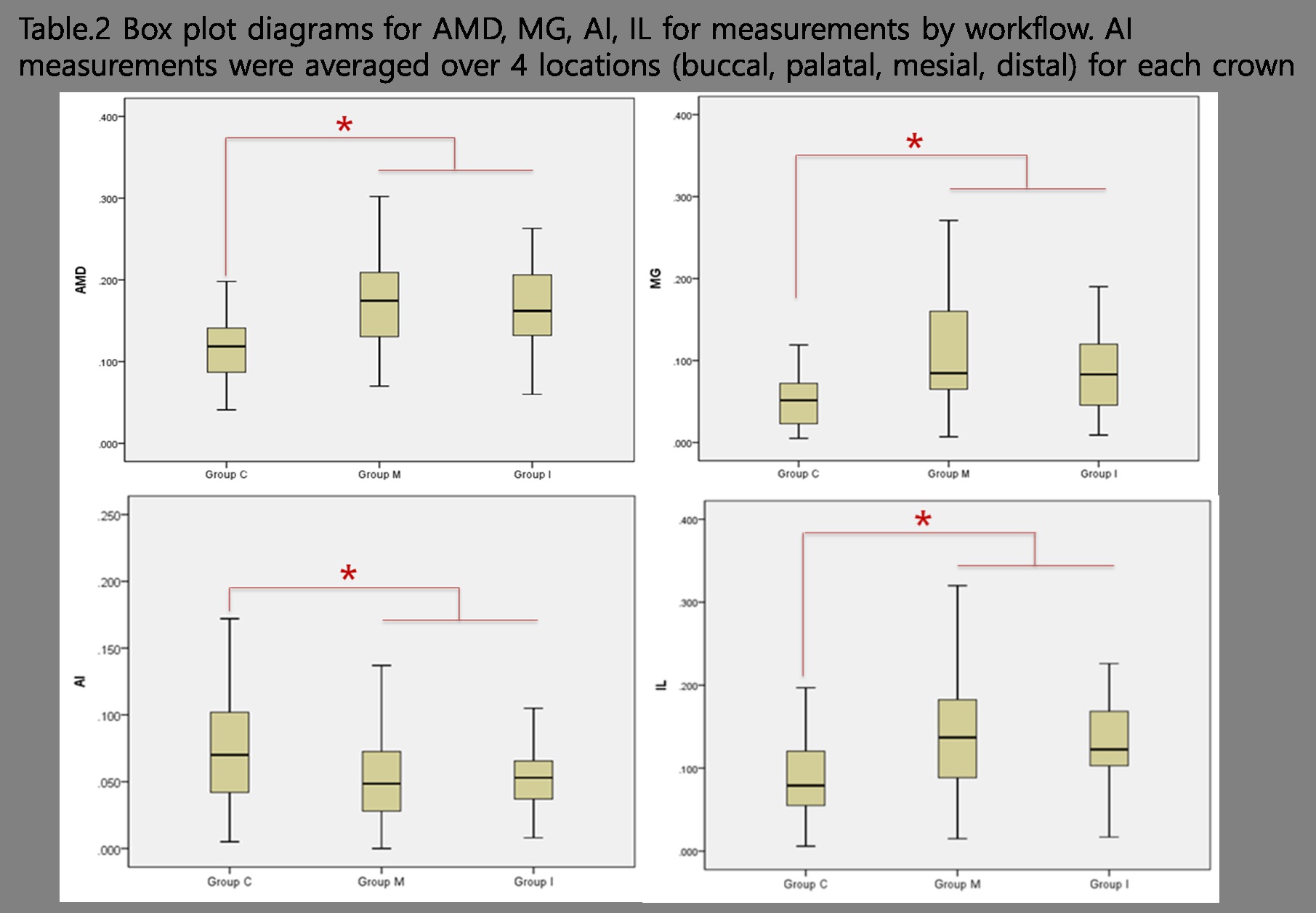IADR Abstract Archives
Assessment of Marginal and Internal Fit of Lithium Disilicate Crowns Using the Triple-scan Protocol
Objectives: The aim of this study was to evaluate the marginal and internal fit of pressed and milled ceramic crowns fabricated with conventional method and two digital workflows.
Methods: One typodont maxillary left first molar prepared for a all-ceramic crown was scanned with intraoral scanner (TRIOS, 3shape, Copenhagen, Denmark). Zirconia master die was fabricated from scan data. Marginal and internal fit of 3 groups of 10 lithium disilicate crowns fabricated with conventional method, model scan method and intraoral scan method. Comparison was performed using the triple-scan protocol; scans of master die, the crown on the master die, and the intaglio of the crown were superimposed. Absolute marginal discrepancy, marginal gap, axial internal gap, and line angle internal gap were measured at buccopalatal, mesiodistal sections. One-way ANOVA and Kruskal-Wallis test were used for statistical analysis(α=0.05).
Results: Absolute marginal discrepancy, marginal gap, and internal line angle gap obtained from conventional group were significantly smaller than that obtained from the other groups.(P<0.05) Axial internal gap obtained from conventional group was significantly greater than that obtained from the other groups(P<0.05). No significant differences were found between model scan group and intra-oral scan group(P>0.05).
Conclusions: Lithium disilicate crowns fabricated with conventional method had better marginal fit, smaller internal line angle gap, greater axial internal gap than crowns fabricated with model scan method and intraoral scan method. Conventional method, model scan method, and intraoral scan method were found to produce crowns with clinically acceptable marginal and internal fit.
Methods: One typodont maxillary left first molar prepared for a all-ceramic crown was scanned with intraoral scanner (TRIOS, 3shape, Copenhagen, Denmark). Zirconia master die was fabricated from scan data. Marginal and internal fit of 3 groups of 10 lithium disilicate crowns fabricated with conventional method, model scan method and intraoral scan method. Comparison was performed using the triple-scan protocol; scans of master die, the crown on the master die, and the intaglio of the crown were superimposed. Absolute marginal discrepancy, marginal gap, axial internal gap, and line angle internal gap were measured at buccopalatal, mesiodistal sections. One-way ANOVA and Kruskal-Wallis test were used for statistical analysis(α=0.05).
Results: Absolute marginal discrepancy, marginal gap, and internal line angle gap obtained from conventional group were significantly smaller than that obtained from the other groups.(P<0.05) Axial internal gap obtained from conventional group was significantly greater than that obtained from the other groups(P<0.05). No significant differences were found between model scan group and intra-oral scan group(P>0.05).
Conclusions: Lithium disilicate crowns fabricated with conventional method had better marginal fit, smaller internal line angle gap, greater axial internal gap than crowns fabricated with model scan method and intraoral scan method. Conventional method, model scan method, and intraoral scan method were found to produce crowns with clinically acceptable marginal and internal fit.


